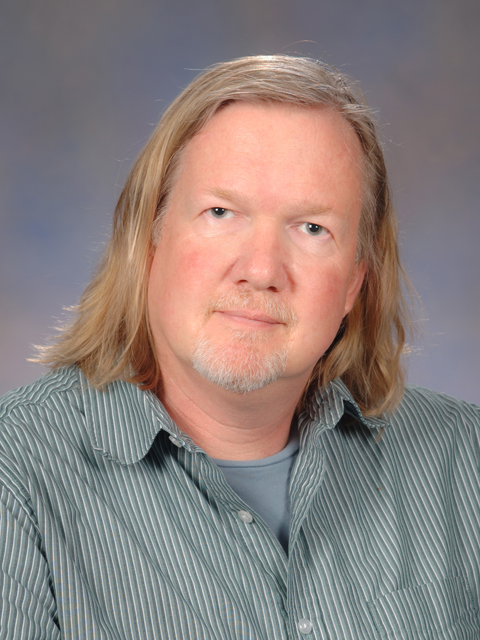David C. Bloom, Ph.D.
Professor of Molecular Genetics and Microbiology
College of Medicine
2013 Awardee
 David Bloom’s research program is aimed at understanding how Herpes Simplex Virus (HSV) remains latent in host cells, as well as how it reactivates to cause painful ulcers, and, in some cases, blindness and encephalitis.
David Bloom’s research program is aimed at understanding how Herpes Simplex Virus (HSV) remains latent in host cells, as well as how it reactivates to cause painful ulcers, and, in some cases, blindness and encephalitis. There are two types of HSV. HSV-1 primarily infects the head region and commonly causes oral cold sores or fever blisters, but is also a cause of blindness (herpes stromal keratitis) and encephalitis. In fact, HSV-1 is the leading cause of infectious blindness in the US, with 30,000 new cases a year. HSV-2 is the primary cause of genital herpes which afflicts over 40 million Americans.
While there are drugs to treat HSV infections, they are not completely effective. They do not block reactivation, resistance can develop, and there is no vaccine or cure. Central to HSV’s biology is its ability to establish a life-long latent infection within neurons of our sensory nerve ganglia. In response to physiological stress, the latent HSV genomes reactivate and cause recurrent disease (lesions), providing a source of virus to infect other individuals.
The mechanisms governing how HSV goes latent in neurons and what triggers it to reactivate are incompletely understood. Bloom’s long-term research goal is to elucidate the molecular basis of the regulation of latency and reactivation of the HSV, and to apply these pathogenic concepts to the development novel and more effective therapies to treat or ultimately cure Herpes infections.
The study of HSV latency is made more challenging because of the lack of a cell culture model to study latency and reactivation. Over the years, Bloom’s lab is has developed robust model systems, defining a role for non-coding RNAs made by HSV during latency in neurons, the latency-associated transcripts (LATs) and miRNAs, in regulating latency.
Bloom’s future research goals include continuing to characterize the viral elements that recruit cellular chromatin modifying proteins to the HSV genome that regulate latency and reactivation. He also plans to continue developing the AAV-vectored ribozyme approach as a treatment for ocular and mucosal HSV infections, as well as designing and testing small molecule inhibitors of the pathways that that regulate HSV reactivation.

